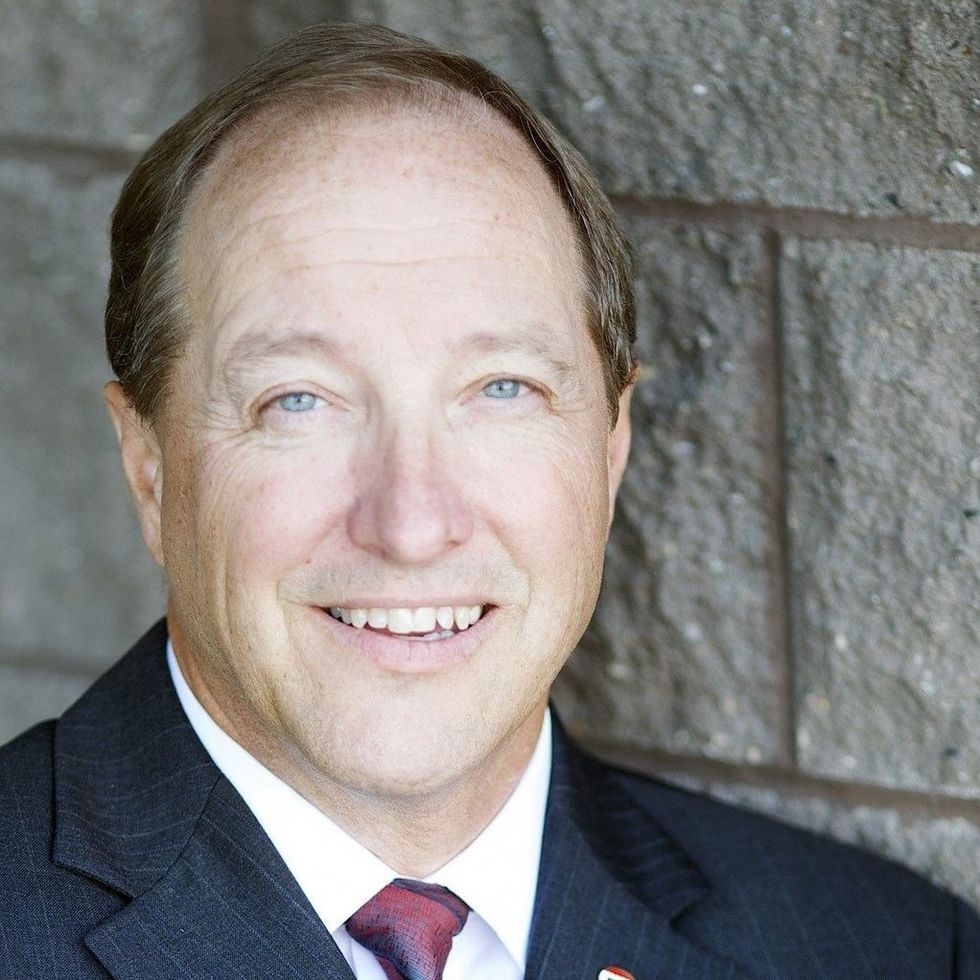The real estate market is in a state of inertia that won’t change until interest rates drop -- something that's forecast by some to happen later this year -- predict industry experts.
In an unknown market, you hold onto gold, and property owners are doing just that, says Andrew Carros, chief operating officer and managing broker at Engel & Völkers Vancouver.
“In Vancouver, we typically have a stubborn and calm sellers pool because everyone knows what they have. It’s like people who buy and sell gold. Gold is typically held in times that are troubled and more volatile.
READ: Greater Vancouver Home Sales Fall 43% Below 10-Year Average
“That applies to a lot of people who buy and sell within the Vancouver market, and not just those coming from somewhere else,” says Carros.
Sellers aren’t selling and developers aren’t building much new housing. The real estate market started to slow last spring when interest rates started to climb, but there’d been the expectation that by fall the market would pick up. It didn’t happen. Now, the usually active spring market will determine what lies ahead, and the forecast is, not much for the first half.

“Are we seeing new product coming onto the market? No, I think there is a big pause going on worldwide everywhere right now,” said Carros. “So there’s not as much new development. In fact, I think that will be the stabilizing force for our market moving forward, is that there is still no inventory and without a lot of inventory not much affect is going to happen based on these changes and policies government is putting out there,” he said, referring to the new foreign buyer ban as an example.
“We are in a big stalemate, specifically Vancouver -- but really everywhere at this moment. Nobody knows how to react or what to do with interest rates having gone up and there being no inventory.
“It’s a very confusing market for people.”
Rennie Intelligence’s senior economist Ryan Berlin raised eyebrows on social media this week with a report in which he forecasts three rate drops by the second half of the year, bringing the Bank of Canada rate from its current 4.5% to 3.75%. This is predicated on inflation coming down, he said.

“It sounds aggressive, but it’s just a mathematical thing because prices ran up so much last year and we’re not seeing month-to-month inflation now. The Bank of Canada knows this as well, that it’s overwhelmingly likely to come down significantly in the near term, unless there’s the equivalent of a new war like Ukraine, an earthquake, COVID 2023, or something we don’t see coming. So [the cuts] are completely predicated on inflation coming down."
They were off about last year, he concedes. Like a lot of economists, he had under-estimated the rate of inflation and the Bank of Canada’s response to it.
But Elton Ash, executive vice president of RE/MAX Realty Canada, also predicts a drop in the next year.
“We believe the same thing, that Q4 this year will see, I predict, a half point less than we are today, at 4%. If not by Q4 then certainly a year from now, Q1 2024,” said Ash.

Berlin’s prediction is only part of his annual report, which includes less happy news for his industry, such as a predicted 13,000 presale transaction count for 2023 -- a small drop from 2022 and a massive drop from 2021, when there’d been 26,000 condo presales.
“So we are way off,” said Berlin, adding that the presale market probably won’t get going till the second half of the year.
The presale market has wound down, exacerbated by inflation and a lack of labour, he said. As well, there’s the first-time buyer stress test of around seven per cent playing a part.
“This is not a rah-rah report. We want to get it right,” he said.
“When people ask what was 2022 like, it’s hard to talk about it like a single entity because the first half was so different than the second half. And 2023 will be the same. So when we develop these forecasts, especially with resale or presale counts, you’ve got to break the year into at least halves, because the way we are starting this year, conditions are not good.
“Regionally we just tallied 1,600 resales, which was one of the lowest Januarys on record for MLS sales. And I don’t see any tailwinds in the very immediate term for transactions, whether it’s resale or presale.”
First-time buyers are hardest hit in a volatile market. Mortgage broker Katy Mackenzie said that it doesn’t help that the Office of the Superintendent of Financial Institutions (OSFI) recently announced proposals to tighten lending rules. OSFI is looking at increasing the stress test used to gauge whether a first-time buyer can afford a mortgage, which is the bank rate plus 2%, or 5.25%, whichever is more.

They’re also looking at the maximum overall borrowing amount and debt servicing rules.
“Typically most lenders look at 44% of your income going to all debt, including housing, mortgage, taxes, heating, strata fees if they apply, and other debts, car loans, student loans, credit cards. They’re looking at tightening that income to debt ratio so you would qualify for less.
If they are looking at these items, I can’t imagine they would change them this year, but say they did it for January next year, and you have a presale closing at that time, so now you have a decreased value, a tighter lending rule, and all you have in place is perhaps a rate hold. That does nothing to protect you from changes the OSFI makes in respect to lending rules.
“This is what worries me the most, is that people think, ‘I put $20,000 down today and I don’t have to pay taxes or a mortgage or strata fees because it completes in 2 years, and I will have a higher income by then. I will save more for the down payment.’
“But as they do that, the government moves the markers in the opposite direction.”





















